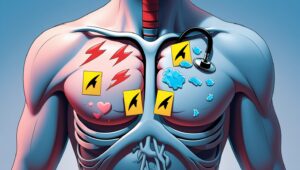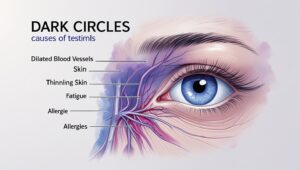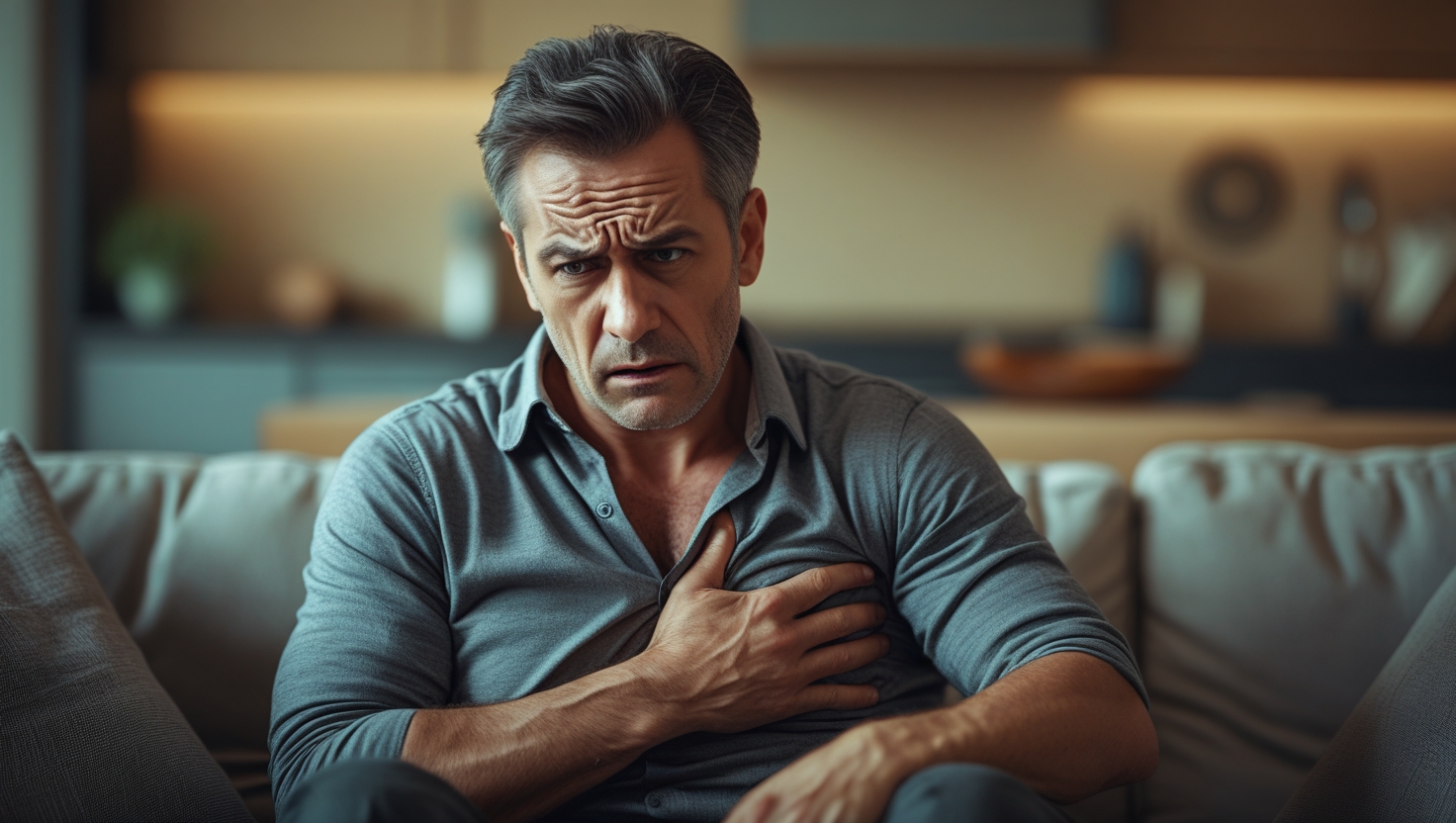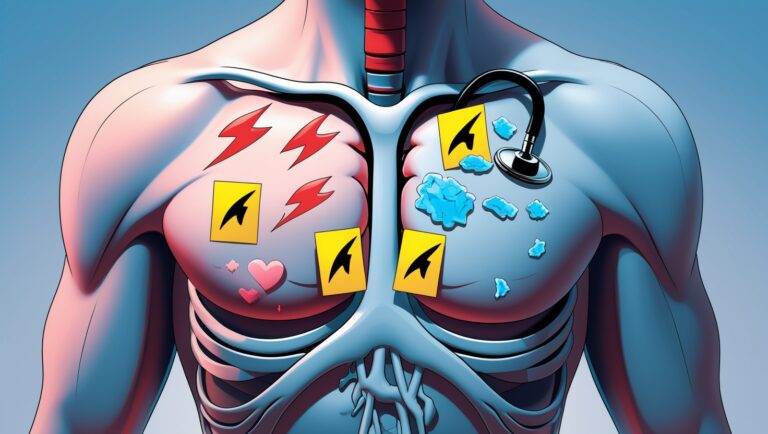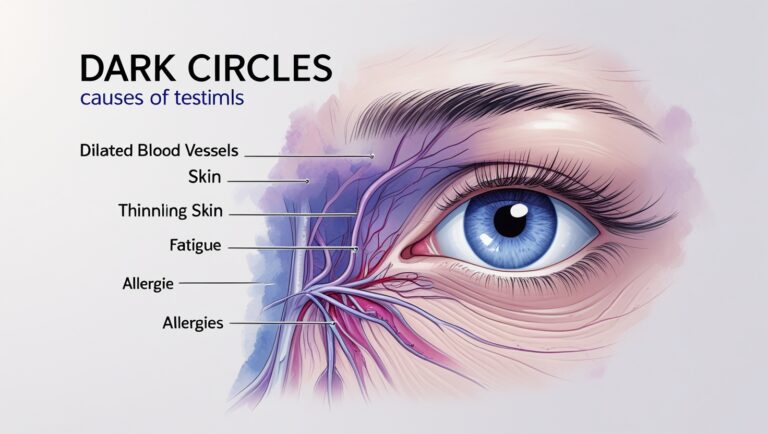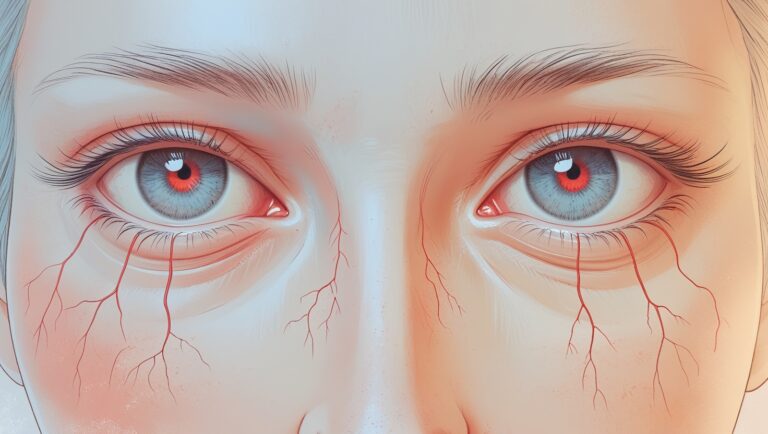Table of Contents
- Introduction
- Understanding Anxiety and Its Physical Effects
- What Does Anxiety-Induced Chest Pain Feel Like?
- How Anxiety Triggers Chest Pain
- Key Differences Between Anxiety Chest Pain and Heart Pain
- Real-Life Examples of Anxiety-Related Chest Pain
- When to Seek Medical Help
- Common Triggers for Anxiety-Induced Chest Pain
- Diagnostic Tests to Rule Out Heart Problems
- How to Manage Anxiety Chest Pain at Home
- Long-Term Strategies to Reduce Anxiety
- When Chest Pain Is Not Caused by Anxiety
- Expert Advice and Scientific Insights
- Final Thoughts and What to Do Next
1. Introduction
Feeling a sudden tightness in your chest can be terrifying—especially if you’re not sure whether it’s a heart attack or something else. For many people, the culprit isn’t heart disease but anxiety. But how can a mental health issue cause such real, physical pain?
In this article, we’ll explore how anxiety can lead to chest pain, what it feels like, how to tell it apart from something more serious, and what you can do about it. If you’ve ever asked yourself, “Can anxiety really cause chest pain?” you’re in the right place.
2. Understanding Anxiety and Its Physical Effects
Anxiety isn’t just in your head. It affects your entire body, especially when it’s chronic. When you’re anxious, your nervous system becomes overstimulated, leading to physical symptoms such as:
- Rapid heartbeat
- Shallow breathing
- Muscle tension
- Headaches
- Chest tightness or discomfort
These symptoms are your body’s way of preparing for perceived danger, even if that danger isn’t real.
3. What Does Anxiety-Induced Chest Pain Feel Like?
Anxiety-related chest pain can vary from person to person, but most people describe it as:
- A sharp, stabbing pain
- Tightness or pressure
- A dull, achy feeling
- Random or fleeting discomfort
- Pain that worsens when focusing on it
The pain is usually located in the center or left side of the chest and can last for a few minutes to several hours.
4. How Anxiety Triggers Chest Pain
Fight-or-Flight Response
When you feel anxious, your body activates the sympathetic nervous system, releasing stress hormones like adrenaline and cortisol. This causes:
- Increased heart rate
- Raised blood pressure
- Muscle contractions
Your chest muscles may tighten, leading to a feeling of pressure or pain.
Hyperventilation and Muscle Tension
Anxiety often leads to fast, shallow breathing (hyperventilation), which reduces carbon dioxide in the blood. This can cause:
- Lightheadedness
- Dizziness
- Chest discomfort
Combined with tense chest muscles, this creates a perfect storm for chest pain.
5. Key Differences Between Anxiety Chest Pain and Heart Pain
| Feature | Anxiety Chest Pain | Heart-Related Chest Pain |
|---|---|---|
| Onset | Sudden during stress or panic | Gradual or triggered by exertion |
| Duration | Short and variable | Lasts longer, often >10 minutes |
| Type of Pain | Sharp, stabbing, shifting | Pressure, squeezing, heavy |
| Associated Symptoms | Dizziness, tingling, sweating | Nausea, shortness of breath |
| Improves With | Relaxation, breathing exercises | Rest or nitroglycerin |
6. Real-Life Examples of Anxiety-Related Chest Pain
Example 1: Rachel, Age 28
Rachel felt chest tightness before a big presentation. She thought she was having a heart attack, only to be diagnosed with a panic attack.
Example 2: David, Age 40
David experienced chest pain after a stressful day. Tests ruled out heart issues, and therapy helped him manage his anxiety better.
7. When to Seek Medical Help
Even if you suspect anxiety, don’t assume. Seek immediate help if you experience:
- Severe or sudden chest pain
- Pain radiating to arm, jaw, or back
- Nausea, sweating, or dizziness
- Shortness of breath
It’s better to be cautious and rule out a heart attack.
8. Common Triggers for Anxiety-Induced Chest Pain
- Work or academic pressure
- Relationship conflicts
- Financial stress
- Social anxiety or phobias
- Health anxiety (worrying about illness)
Identifying triggers is the first step to prevention.
9. Diagnostic Tests to Rule Out Heart Problems
If you present with chest pain, doctors may run:
- Electrocardiogram (ECG)
- Chest X-ray
- Blood tests (for heart enzymes)
- Stress tests
Once heart-related causes are excluded, anxiety is often considered.
10. How to Manage Anxiety Chest Pain at Home
Quick Relief Techniques
- Deep breathing: Inhale 4 seconds, hold 4, exhale 6
- Grounding exercises: 5-4-3-2-1 technique
- Light stretching: Relaxes tense chest muscles
- Use positive affirmations: “This is anxiety, not a heart attack”
Lifestyle Tips
- Limit caffeine and alcohol
- Get regular exercise
- Sleep 7-9 hours a night
- Avoid screens before bed
11. Long-Term Strategies to Reduce Anxiety
- Cognitive Behavioral Therapy (CBT): Helps reframe anxious thoughts
- Medication: SSRIs or beta-blockers (under doctor supervision)
- Mindfulness and meditation: Reduces overall stress levels
- Journaling: Helps track triggers and patterns
- Support groups or therapy apps: Great for ongoing support
12. When Chest Pain Is Not Caused by Anxiety
Sometimes chest pain may seem anxiety-related but isn’t. Always be cautious if:
- You have a history of heart disease
- You’re over 40 with risk factors (diabetes, smoking, etc.)
- The pain feels different from past anxiety episodes
13. Expert Advice and Scientific Insights
According to a 2025 Mayo Clinic study, nearly 30% of ER visits for chest pain are anxiety-related. Experts emphasize that anxiety chest pain is real, but reversible with proper care.
Dr. Lisa Chang, a cardiologist, explains:
“We encourage people not to self-diagnose. It’s essential to rule out heart conditions first, then address the psychological side.”
14. Final Thoughts and What to Do Next
Chest pain from anxiety is common and treatable, but it can mimic serious heart problems. Don’t panic—breathe, pause, and act with intention.
Here’s what you can do now:
- Schedule a checkup to rule out heart issues
- Start a stress journal to track triggers
- Try breathing techniques during anxious moments
- Consider therapy or talking to a mental health professional
If this article helped you, share it with someone who needs peace of mind. Awareness can be a powerful first step toward healing.
Your mental and physical health are connected—treat both with care.
